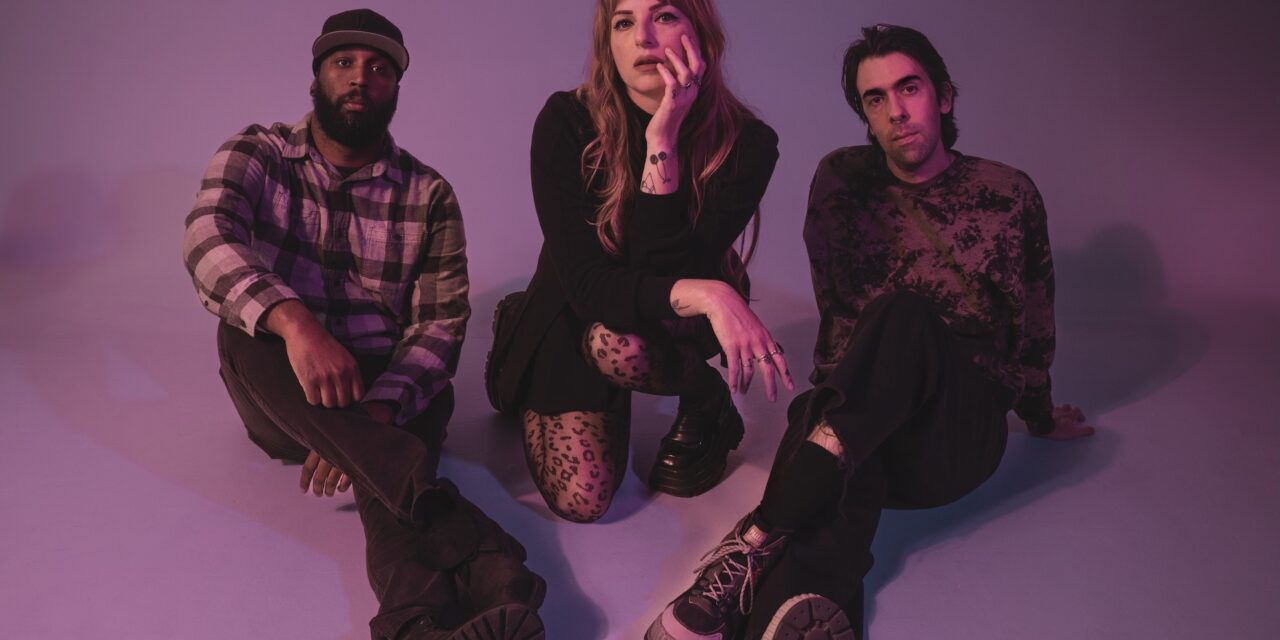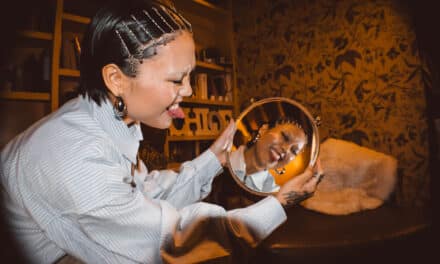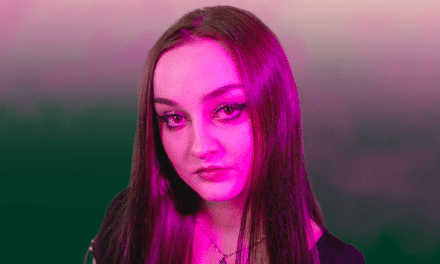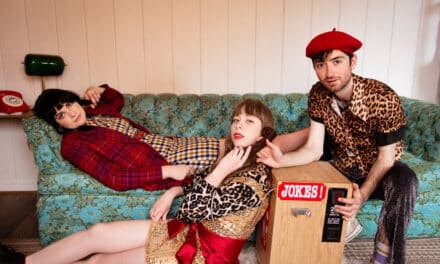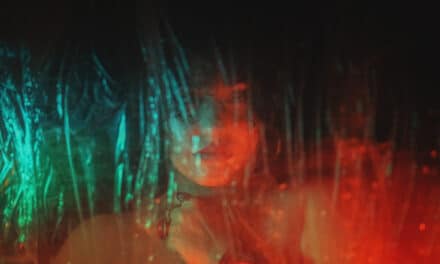Los Angeles alt-rock trio Ramonda Hammer are back and louder than ever. Their new EP, Wake Up, Play Nice — out November 14th — marks a blistering new chapter for the band, pairing emotional chaos with unfiltered catharsis. Alongside the announcement, they’ve released their explosive new single, “Hush Money,” now streaming everywhere.
“‘Hush Money’ calls out how quickly loyalty and love can collapse under ego,” says vocalist and guitarist Devin Davis. “It’s a song about greed, betrayal, and the baffling silence that follows when things get messy.”
The track, which premiered via New Noise Magazine, is a fiery statement — jagged guitars, snarling vocals, and a searing chorus that echoes long after it fades. It’s everything fans have come to love about Ramonda Hammer: a perfect storm of grit, melody, and emotional wreckage.
A Band Built on Resilience
Described by Rolling Stone as “an alternate Nineties where L7 was the biggest band in the world,” Ramonda Hammer have carved out a sound that sits somewhere between Mannequin Pussy, Momma, and Bully — a raw hybrid of power and vulnerability.
Their signature blend of “thrasher-pop anxiety and a rocker’s shoulder shrug” (Earmilk) and “indie-rock sound that’s equal parts power and melody” (LA Weekly) has cemented them as one of LA’s most exciting and uncompromising acts.
After taking a step back in 2022 to regroup, Davis, Justin Geter (guitar), and Andy Hengl (drums) returned in 2025 with singles “Eyelash” and “The Panic,” teasing a creative rebirth that’s now fully realized in Wake Up, Play Nice. Produced by Maxcy James and mixed by two-time Grammy winner Adrian Bushby, the EP captures the band at their most urgent and unapologetic.
Rage, Reflection, and Rebirth
Each track on Wake Up, Play Nice examines a different facet of endurance:
- “Eyelash” claws through the exhaustion of a toxic relationship.
- “The Panic” turns anxiety into clarity.
- “Hush Money” stares betrayal dead in the face — and refuses to flinch.
“We’ve all had to go through the motions and fake our way through hard times,” Davis reflects. “The phrase Wake Up, Play Nice carries that sarcastic edge — but ultimately, these songs are about choosing authenticity over performance. Otherwise, we’ll just melt into oblivion.”
Chaos Meets Catharsis
With raw emotion, heavy riffs, and hooks that hit like a gut punch, Ramonda Hammer continue to thrive where most would break. Their music lives at the edge — equal parts fury and freedom.
“Hush Money” tears through themes of greed, betrayal, and silence — when you were writing it, was there a specific moment or experience that pushed you to confront those emotions so directly?
Yes, without going into too much detail, I did recently experience a falling out with some close friends over money of all things, which sucks. It was super painful and shocking because I had a totally different idea of what kind of community we were.
You’ve described Wake Up, Play Nice as both sarcastic and self-aware — what does that phrase mean to you in the context of today’s world, where authenticity can feel like performance?
Hmm, I’m not sure. What’s true for me is that I often can’t tell the difference between someone being real or fake, especially if they are very good at masking. So that comes to mind, because I mask a lot and don’t even know I’m doing it. Anyways, I guess I strive to be at peace with the “wake up, play nice” mentality, rather than bound by it.
After stepping back in 2022, what changed most about your approach to songwriting and collaboration when you came back to record Wake Up, Play Nice?
We really started incorporating new styles of writing and musical genres and being a little more intentional about who we invite in to help shape our recorded sound.
The production by Maxcy James and mixing by Adrian Bushby add a visceral intensity to the record. How did their input shape the emotional architecture of these songs?
There was this combination of Maxcy’s beautiful, emotional first reaction to our song “Quite Lovely” and hearing some examples of Maxcy’s truly unique music production, that made it the right collaboration. Our recorded sound evolved because of Maxcy’s fresh perspective and infinite cool ideas. And then Maxcy connected us with Ade, who was also really captivated by the songs and that meant a lot coming from someone who’s worked with some of our favorite rock legends like Muse. So really we just kept moving toward that feeling of others being excited about the art itself – as we’d much rather work with folks who are like, genuinely invested.
You’ve been compared to bands like Mannequin Pussy, Bully, and Speedy Ortiz, but your voice and perspective are unmistakably your own. How do you navigate influence versus individuality in your creative process?
I keep in mind the phrase “steal like an artist,” and try to remember that what comes out of me when I’m influenced by others is still my own. When I get down on myself for like, making the same kind of music and saying the same message as other artists, I think about how my individual dying needs to express myself is an energetic exchange with the world, and it’s important.
Each track on the EP explores a different “face of resilience.” Which song felt the hardest to write — and which one felt the most healing once it was finished?
They were all healing in some way but I’d have to go with “The Panic”. That song is like exposure therapy for me every time.
“Hush Money” was probably the hardest to write lyrically because I wanted to be honest without being mean, and also express some of my own faults in the process.
You’ve called this your most unapologetic work to date. What does “unapologetic” mean to you right now — as artists, as people, and as part of a larger alt-rock movement reclaiming its grit and honesty?
The act of creating feels like something people shouldn’t typically have to apologize for. And for someone like me – lyrics are only way I can express certain emotions – I can release a lot of tension that way and transmute pain and other hard feelings. So in that sense it’s like, I’m definitely not sorry for my freedom of speech (while I have it), because it’s helping rather than harming and if you don’t like the music then don’t listen to it.

